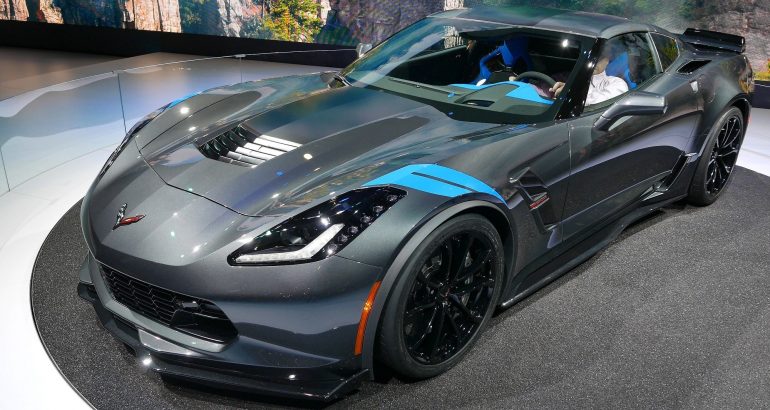
For car enthusiasts there is no question that one of type of policy stands out and that’s an Agreed Value Policy. While not exclusive to car enthusiasts, agreed value policies solve a number of the most common challenges car enthusiasts face when dealing with insurance valuation.
In this blog post, we’ll review what agreed value policies are, why they matter for car enthusiasts and five common scenarios where an agreed value policy may be needed to ensure you’ve got the right coverage.
What Are Agreed Value Policies?
Agreed Value and Guaranteed Value policies generally provide for a specific and agreed upon value up front with your insurance company. The value is the basis for any payments in the event of a total loss.
With Agreed Value and Guaranteed Value policies you’ll always want to verify both what the insurance company thinks the value of your specialty car is and where they get the value from. For example, Hagerty has it’s own value database. While this is great because it does evaluate the enthusiast market, it doesn’t mean their value will match what you expect. Make sure you know what you believe is the replacement value and use that value.
It should also be noted that with Agreed Value and Guaranteed Value policies that the additional value of the vehicle is factored into the price. So while you may wind up paying a little bit more in some situations, you are also getting more. However, we’ve actually found in a lot of situations you can get agreed value policies for less than typical full coverage from a mainstream provider.
Bottom line, agreed value policies take a substantial amount of the guess work and risk out of valuation. Just like in any situation, having agreed expectations up front is a lot easier. The same is true with the valuation of your vehicle. Particularly if the value is not straight forward.
Five Situations Where You May Need An Agreed Value Policy
You’ve Made Significant Investment Or Changes To The Car
If you’ve made a substantial investment into your vehicle, such as modifications, paint, motor swaps, restoration or upgrades to your vehicle you’ll definitely want to strongly consider an agreed value policy. Your vehicle doesn’t have to be high value for qualify for an agreed value policy.
If you don’t have an agreed value policy, you’ll likely need to document all of the investment and modifications you’ve made to the vehicle or get a full appraisal. Even then, you may still find yourself never receiving the true replacement cost. Why? Modifications may be excluded. Also, determining the value may be difficult, even with an appraisal.
Another reason is in the case where you are not at fault, your insurance company may be limited in what they can (or will) do to fight for the value you think you should get. Bottom line, unless you have an agreed value policy there under a lot less obligation to fight for a higher value.
Protecting The Value Of The Vehicle From Uninsured Motorist Or When Someone Else Is At Fault
If you do have an incident with the car and the other driver is at fault, it could quickly become a complicated situation. The other driver may have no insurance at all, or it may be from a little or unknown company.
How does this impact value you may be paid? If you don’t have a pre-defined valuation you may find yourself in a position of not only having to make a case for value to the other insurance, but your own.
With an Agreed Value Policy your insurance company isn’t just guaranteeing the value of your car in the event they need to pay out for a loss or repair, but they are also ultimately defending that value and essentially guaranteeing it in the event of a loss due to uninsured motorists or when the other party is at fault.
Your Vehicles Book Value (Actual Cash Value) Is Lower Than The Cost To Replace It
If you know you couldn’t replace your vehicle – because of modification, restoration, or even just condition, for the “actual cash value” (ACV) of the vehicle, you probably want an Agreed Value policy. You can easily get a ballpark idea of what actual cash value for your vehicle would be by using a free online service like Kelly Blue Book (kbb.com). Enter your vehicles details and get the value range. There is a good chance this will be close to the offer you’ll get from your insurance company.
Remember, the actual amount you may get in the event of a loss is not just actual cash value, but ACV minus depreciation. So the actual check may be even lower with an ACV policy.
Your Car Is Unique Enough There Is No Value Database
If your car or vehicle is unique enough there is no value in most valuation tools, chances are you’ll need an agreed value policy. If it’s hard to establish value at the time of loss you are likely headed for disappointment. Your insurance company will likely use the closest possible match. The problem is, for unique cars – whether because they are rare, imported, customized or simply improved – there may be no other realistic way to define a value other than coming to an agreement up front with your insurance company. If you don’t, you run the risk of needing to pay for an appraisal. Even in that situation, appraisers may not be able to establish the value in the same way you would.
There are limits to what insurance companies will agree to. After all, it’s agreed value, so they have to agree up front as well. But considering insurance companies generally factor into the price the amount requested, they often are willing to work with you. At least the ones that are friendly to car enthusiasts and work with agreed value policies.
You Don’t Want Your Car Totaled
Most insurance companies calculate a percentage of the total value of the vehicle to determine when to write it off, usually around 75%. If the cost of repairs in the event of an accident exceeds this amount, the insurance company will generally decide to just write a check for the amount.
If you love your car, or it’s unique, this could be a significant concern. Worse, if they calculate the value using ACV, 75% of that may be significantly off not only what you think the car is worth, but lower the bar needed to total the vehicle. While your insurance company may want to try to get you back on the road, most insurance companies don’t want the hassle of repairs. The more complicated the repair scenario, the less they will want to deal with it.
In addition to valuation benefits of an Agreed Value Policy, there are also a number of insurance companies that guarantee your ability to buy back or receive, as part of the policy price, the vehicle even if they total it.
Some Bonus Reasons
We said five reasons, but here are a few more. While we aren’t deep diving into these, they are good to keep in mind.
Appreciating Value – most cars lose value every year and that is factored into the cash value. But what if you car is appreciating in value? Agreed Value is a great way to ensure the market value is actually captured.
Diminished Value – if your incident doesn’t result in a total loss, you’ll often get a diminished value payment. Cars that have been in accidents are not worth as much as those that haven’t, even if they’ve been repaired. The calculation for most diminished value payments is based on the value of the vehicle.
Shift Brokers Can Help You Navigate
Shift Brokers is car insurance for car enthusiasts. We can help you understand the how different carriers will value your specialty car. In addition, we can help you select from insurance companies that will get you the kind of service and coverage you need. And because we are car enthusiasts and specialize in policies for car enthusiasts, we can help you navigate the unique needs and situations only car enthusiasts find themselves in. The best part is, because we are brokers, we represent you, not the insurance companies.
Request a quote and lets start talking cars.


